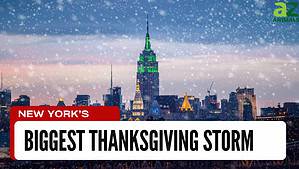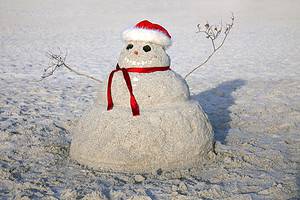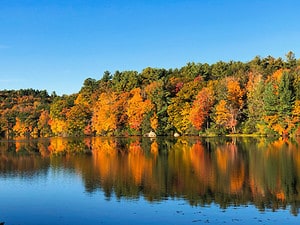Hurricanes are large swirling storms you don’t want to mess with. They are large but vary in size. Hurricanes range in intensity and are categorized into 5 categories. However, no matter how large a hurricane is or the category it is in, these storms can be dangerous and destructive. When a hurricane is expected to hit near you, shelter in place and prepare with water, canned food, and flashlights with plenty of batteries.
Hurricanes, though, usually only form during certain seasons and peak times. So, when is hurricane season?
When Is Hurricane Season?
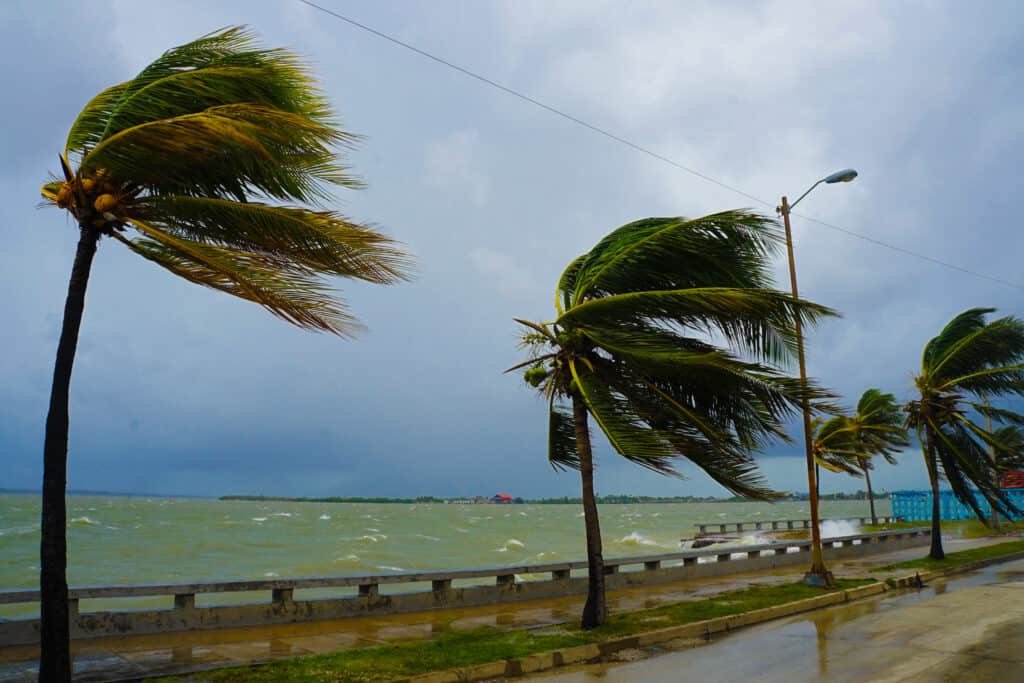
Hurricane season typically starts on Wednesday, June 1st, and ends on Wednesday, November 30th.
©Inspired By Maps/Shutterstock.com
Hurricane season is technically starting earlier and earlier each year. However, it typically starts on Wednesday, June 1st, and ends on Wednesday, November 30th. Don’t let these dates fool you, though; hurricanes are unpredictable and can form in the Atlantic before June 1st and after November 30th. In 2022, the first hurricane to form in the Atlantic was Hurricane Danielle on August 30th. However, there were three tropical storms previously that did not strengthen into a hurricane before dissipating. Tropical Storm Alex formed on June 5th but was detected as a low-pressure area on May 31st.
What Month Are Hurricanes the Worst?
Each year, there is a threat of strong hurricanes forming in the Atlantic, but some months see more movement than others. It changes every year depending on the weather, climate, and other factors. However, hurricane activity is high between August and October. On average, September is the busiest month for hurricanes. May, on the other hand, is the least active month of the Atlantic hurricane season.
Where Do Hurricanes Hit the Most?
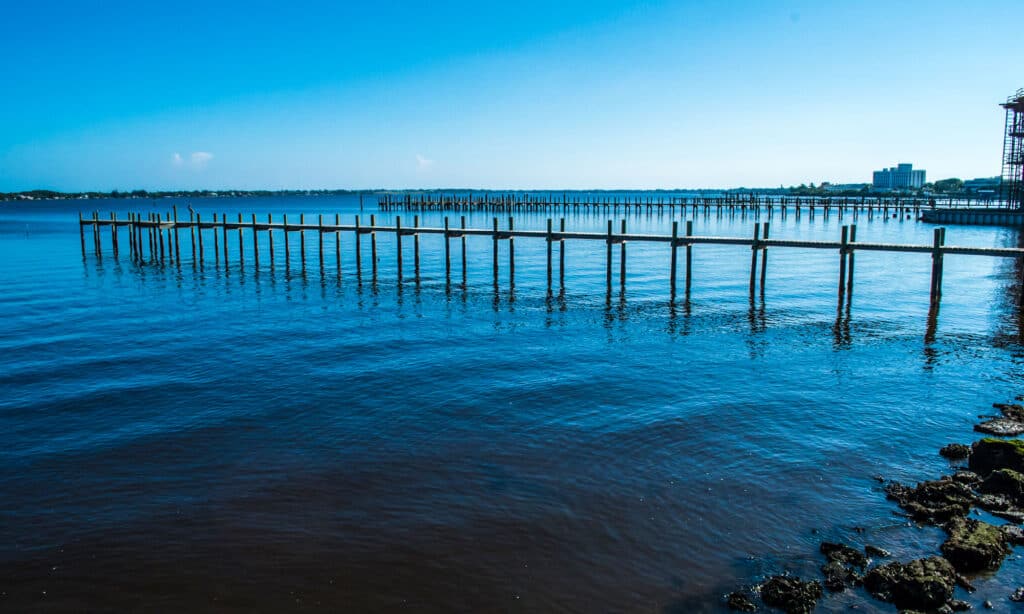
The state of Florida is hit the most by hurricanes.
©iStock.com/DawnDamico
Hurricanes typically form in the Atlantic Ocean, and they are the most destructive storms. While hurricanes do form in the Pacific Ocean, they don’t reach the U.S. continental states. The state of Florida is hit the most by hurricanes. Since 1851, when the Saffir/Simpson scale was first widely used, Florida has been hit with 120 hurricanes. Not all hurricanes were the same, though; about 47 hurricanes entered as category ones compared to three category fives.
Florida doesn’t have a mysterious pull that attracts hurricanes; it just happens to be in a perfect spot. This peninsula sits within both the Atlantic Ocean and the Gulf of Mexico, meaning it can be hit by hurricanes formed in both waters. Second after Florida is Texas, with 64 hurricanes. None have entered category five. Actually, category five hurricanes making landfall in the U.S. is rare.
How To Prepare for a Hurricane
Not everyone will experience a hurricane in their lifetime. They are rare unless you live in a coastal state surrounded by warm waters. The best thing you can do when living in a hurricane-prone state like Florida or Texas is to prepare in advance. Before hurricane season, purchase items necessary in case of an emergency. These items include:
- packs of water bottles
- canned goods
- non-perishable foods
- emergency medical kits
- blankets and towels
- extra clothing packed in small bags
- flashlights
- additional batteries
- generators
- gas
- camper oven
It’s not enough to just purchase the items, though. Every year, you should test the objects and check the expiration date on the food. This way, you won’t get sick during an emergency. Hurricanes are so powerful, the winds can take down power lines, trees, and more. Sometimes, this takes out power and water for millions of people and leaves others stranded in flooded areas.
What To Do During a Hurricane
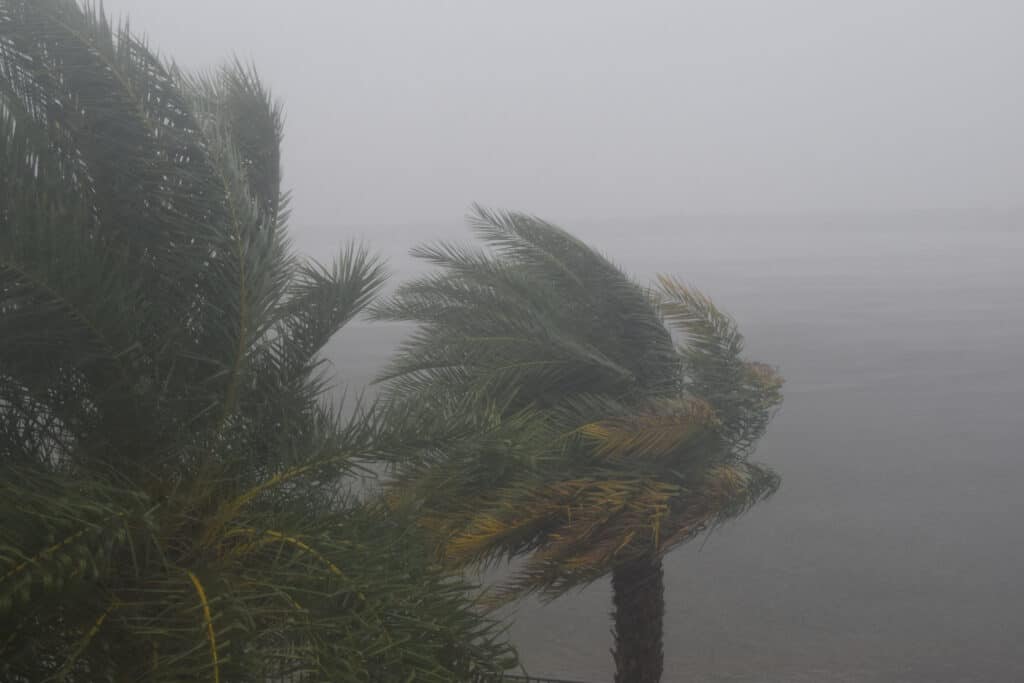
It is advised not to go outside or stand close to a window during a hurricane.
©LouiesWorld1/Shutterstock.com
It can be tempting to want to run outside or stand close to a window to see the action. As exciting as it may be, don’t put yourself in danger. Stay away from windows during a hurricane. Even if the wind and water are not extreme, the weather conditions can form a tornado or sinkhole. Trees and branches can also crash through glass windows, cutting you during the process.
During a hurricane, you should remain as calm as possible. Charge your devices, but don’t leave them plugged in overnight. This way, if the power goes out, your items are not affected by the sudden blackout. Instead, play board games, complete a puzzle, read a book, or cuddle! Hurricanes are also a great time to catch up on sleep, especially without distractions. Remember, don’t step outside until the danger has passed. Just because it doesn’t look windy or rainy does not mean it’s safe. When the eye surrounds an area, it turns calm, which can fool many into thinking it’s over. To keep up with the news, listen to the radio using a battery-powered radio or an offline app on your phone.
Up Next:
- What Causes Hurricanes? How are They Formed?
- This is How Hurricanes Get Their Names
- Which Countries Have The Most Hurricanes?
The photo featured at the top of this post is © LiL SUS/Shutterstock.com
Thank you for reading! Have some feedback for us? Contact the AZ Animals editorial team.



